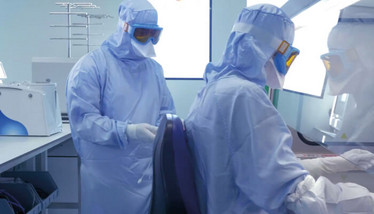Point of Care, Point of Commercialization
UC Davis joins Orgenesis’ point-of-care network to develop and commercialize cell and gene therapies in house

What if research hospitals could fully develop and process cell and gene therapies themselves? This was the question posed by Vered Caplan, CEO at Orgenesis, in a 2019 issue of The Medicine Maker (1). She explained how the costs of cell and gene therapies could be reduced if there was no need to involve traditional biotech companies or commercial CMOs. To facilitate this, Orgenesis is building a network of hospitals around the world that are equipped to develop and process cell and gene therapies, called point of care (POCare).
The University of California, Davis, has recently joined the network (2). Here, we speak with Peter Molloy, Executive Vice President at Orgenesis, to find out more.
Tell us about Orgenesis...
We have two distinct divisions. The first one – which can be considered the original and founding part of Orgenesis – is MasTherCell. MasTherCell provides CDMO services for many of the world’s leading pharmaceutical and biotechnology companies, as well as research institutions and hospitals involved in cell therapy. Our second division focuses on finding solutions to industrializing cell therapies and providing a way to scale up the manufacture of products, while making them available at a lower, affordable price point. To address this, we have begun to build a network of hospitals around the world, and develop this into a fully functional, streamlined consortium.
How does the POCare network function?
Within this POCare network, we are developing a partnership model where we will essentially set up and run the hospital-based GMP facilities on their behalf. Typically, hospitals either don’t know how to work to GMP standards for cell and gene therapies, or in some cases where they actually have facilities, they just aren’t able to build the required know-how that is needed to operate them. This is certainly not a criticism of the hospitals, but a reflection on how technically challenging this process is. For Orgenesis, just being in a position to run hospital facilities is exciting. We are able to speak directly to onsite researchers, see new research programs, and assist them in turning these into commercially available products.
The only real alternative for hospitals who want to develop cell therapies (aside from joining a network like this) is to take the classic model of spinning out either their services or innovations into a biotech company, which can raise venture finance and further develop the product. However, they still face the same problems of trying to find capacity in this market whilst also conceding some of the up-side value or ownership of the product opportunity.
How does technology fit into the model?
Alongside establishing this network, we are focused on delivering new technologies into the process, such as closed, automated systems for manufacturing cell therapies. Skilled people are clearly an important factor in the cost of scale-up, but introducing closed systems means that cell therapy services can be delivered from a less expensive clean space, requiring fewer, lower skilled workers. In addition, multiple systems can co-exist in a single area.
We now have closed systems customized for each different therapy – and that’s important because, in this arena, one size does not fit all. In doing so, we are partnering with other companies to provide the full quality control suite, and also looking to bring in new hardware, such as biosensors, into the automation.
What makes UC Davis a good match for POCare?
UC Davis runs one of the largest university-based GMP facilities for cell and gene therapies in the US, and the team there is highly respected for their expertise and innovation in this field. UCD also shares the same goals as Orgenesis in terms of enabling these new cell and gene therapies to reach patients in a cost-efficient manner.
The initial collaboration is focused on advancing the vector manufacturing process developed by UCD into a closed and automated system. These viral vectors are a critical component of many cell and gene therapies and currently represent a major component of their overall cost. By automating the process in a closed system, Orgenesis will significantly reduce the associated costs, as well as creating a flexible, scalable solution that can be deployed throughout the Orgenesis POCare network.
- The Medicine Maker, “Breaking the Bottleneck of Affordability” (2019). Available at: https://bit.ly/2u5NBUa
- Orgenesis, “Orgenesis Announces Addition of University of California, Davis, to its Point of Care Network” (2020). https://bit.ly/2GGJxMN

Over the course of my Biomedical Sciences degree it dawned on me that my goal of becoming a scientist didn’t quite mesh with my lack of affinity for lab work. Thinking on my decision to pursue biology rather than English at age 15 – despite an aptitude for the latter – I realized that science writing was a way to combine what I loved with what I was good at.
From there I set out to gather as much freelancing experience as I could, spending 2 years developing scientific content for International Innovation, before completing an MSc in Science Communication. After gaining invaluable experience in supporting the communications efforts of CERN and IN-PART, I joined Texere – where I am focused on producing consistently engaging, cutting-edge and innovative content for our specialist audiences around the world.



















